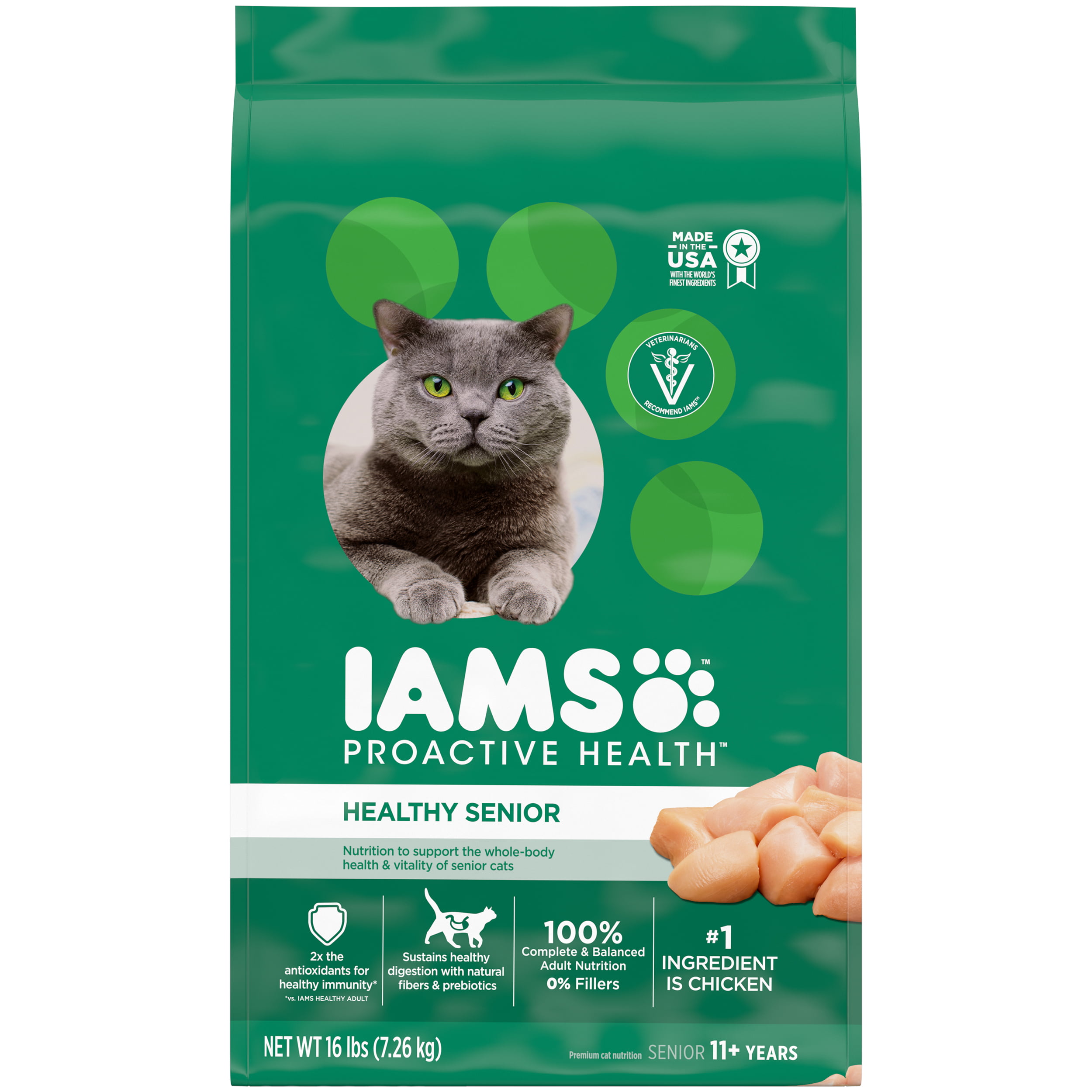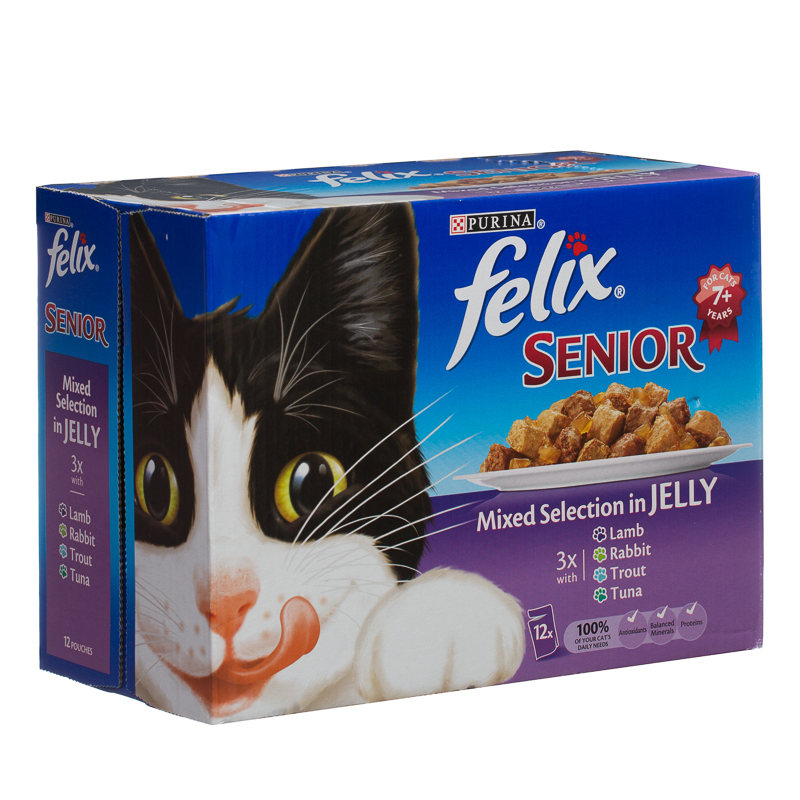Senior cat food is a crucial aspect of caring for our beloved aging companions. As our feline friends enter their golden years, their nutritional needs evolve, and it becomes essential to provide them with a diet tailored to their specific requirements.
This comprehensive guide will delve into the unique nutritional needs of senior cats, explore the different types of senior cat food available, and guide you through the transition process. We’ll also uncover common health conditions in senior cats and how senior cat food can help manage them.
So, let’s dive into the world of senior cat nutrition and ensure our furry friends thrive in their later years.
With a keen focus on providing essential information, this guide aims to empower cat owners with the knowledge they need to make informed decisions about their senior cats’ nutrition. By understanding their specific dietary requirements, we can help them maintain a healthy weight, prevent age-related health issues, and enhance their overall well-being.
Common Health Conditions in Senior Cats: Senior Cat Food

As cats enter their senior years, they may experience a variety of health conditions due to the natural aging process and changes in their metabolism. These conditions can range from minor ailments to more serious diseases that require veterinary care.
Senior cat food is specially formulated to address the unique nutritional needs of older cats and can help manage some of the common health conditions they face. These foods typically contain higher levels of certain nutrients, such as antioxidants, omega-3 fatty acids, and fiber, which can help support the immune system, reduce inflammation, and promote healthy digestion.
When your senior kitty needs a little extra TLC, make sure you’re feeding them the best. Senior cat food is specially formulated to meet the nutritional needs of older cats, providing them with the essential vitamins and minerals they need to stay healthy.
And if you’re looking for a way to help out your community while you’re at it, consider donating to the houston food bank . They provide food to those in need, and every little bit helps. So stock up on senior cat food today, and know that you’re making a difference in the lives of both your furry friend and your community.
Arthritis
Arthritis is a common condition in senior cats that causes inflammation and pain in the joints. Senior cat food can help manage arthritis by providing nutrients that support joint health, such as glucosamine and chondroitin.
Example: Hill’s Science Diet Joint Care is a senior cat food formulated with glucosamine and chondroitin to support joint health.
Kidney Disease
Kidney disease is another common condition in senior cats that can lead to a decrease in kidney function. Senior cat food can help manage kidney disease by providing a low-protein, low-sodium diet that reduces the workload on the kidneys.
Example: Royal Canin Renal Support is a senior cat food formulated with a low-protein, low-sodium diet to support kidney health.
Dental Disease
Dental disease is a common problem in senior cats that can lead to pain, tooth loss, and other health problems. Senior cat food can help manage dental disease by providing a crunchy texture that helps to clean teeth and remove plaque.
Example: Purina Pro Plan Senior Dental Care is a senior cat food formulated with a crunchy texture to help clean teeth and remove plaque.
Obesity
Obesity is a common problem in senior cats that can lead to a variety of health problems, including diabetes, heart disease, and arthritis. Senior cat food can help manage obesity by providing a low-calorie, high-fiber diet that helps to maintain a healthy weight.
Example: Iams Proactive Health Senior Weight Control is a senior cat food formulated with a low-calorie, high-fiber diet to help maintain a healthy weight.
Transitioning to Senior Cat Food
As your feline companion enters their golden years, it’s crucial to adjust their diet to meet their changing nutritional needs. Transitioning to senior cat food ensures they receive the optimal balance of nutrients to support their health and well-being.
Best Practices for Transitioning
* Start gradually:Begin by mixing a small amount of senior food with their current food, gradually increasing the ratio over 7-10 days. This allows their digestive system to adapt.
Monitor their appetite
Keep an eye on your cat’s appetite during the transition. If they show signs of decreased appetite, slow down the transition or consult a veterinarian.
Consider their preferences
Senior cats may have different taste preferences. If they refuse to eat the new food, try different flavors or textures.
Potential Challenges and Solutions
* Digestive upset:Sudden dietary changes can cause digestive issues. Transitioning gradually and monitoring their appetite helps minimize this risk.
Weight loss
Some senior cats may experience weight loss during the transition. If this occurs, consult a veterinarian to rule out underlying medical conditions.
Dental issues
Senior cats may have dental problems that make it difficult to chew hard kibble. Consider a soft or wet food diet if necessary.
Additional Considerations

When selecting senior cat food, consider your pet’s age, activity level, and dental health. Older cats may have reduced appetites and require smaller portions, while active cats need more calories. Cats with dental issues may benefit from soft or moistened food.
Selecting the Right Senior Cat Food
- Consult your veterinarian for personalized recommendations based on your cat’s health and lifestyle.
- Read the ingredient list carefully and choose foods with high-quality proteins, digestible carbohydrates, and essential nutrients.
- Consider your cat’s preferences and try different flavors and textures to find what they enjoy.
- Monitor your cat’s weight and body condition regularly to ensure they are maintaining a healthy weight.
Success Stories
“My senior cat, Max, was losing weight and energy. After switching to a senior cat food tailored to his age and activity level, he regained his appetite and vitality.”
Sarah, cat owner
“My cat, Whiskers, has dental issues. The soft senior cat food I feed him has made it easier for him to eat and has improved his overall health.”John, cat owner
Conclusive Thoughts

In conclusion, feeding your senior cat the right food is a vital part of ensuring their health and happiness in their golden years. By considering their unique nutritional needs, choosing high-quality senior cat food, and transitioning them gradually, you can help your feline companion age gracefully and live a long, fulfilling life.
Remember, every cat is different, so consulting with your veterinarian is always recommended to determine the best diet for your beloved pet.


